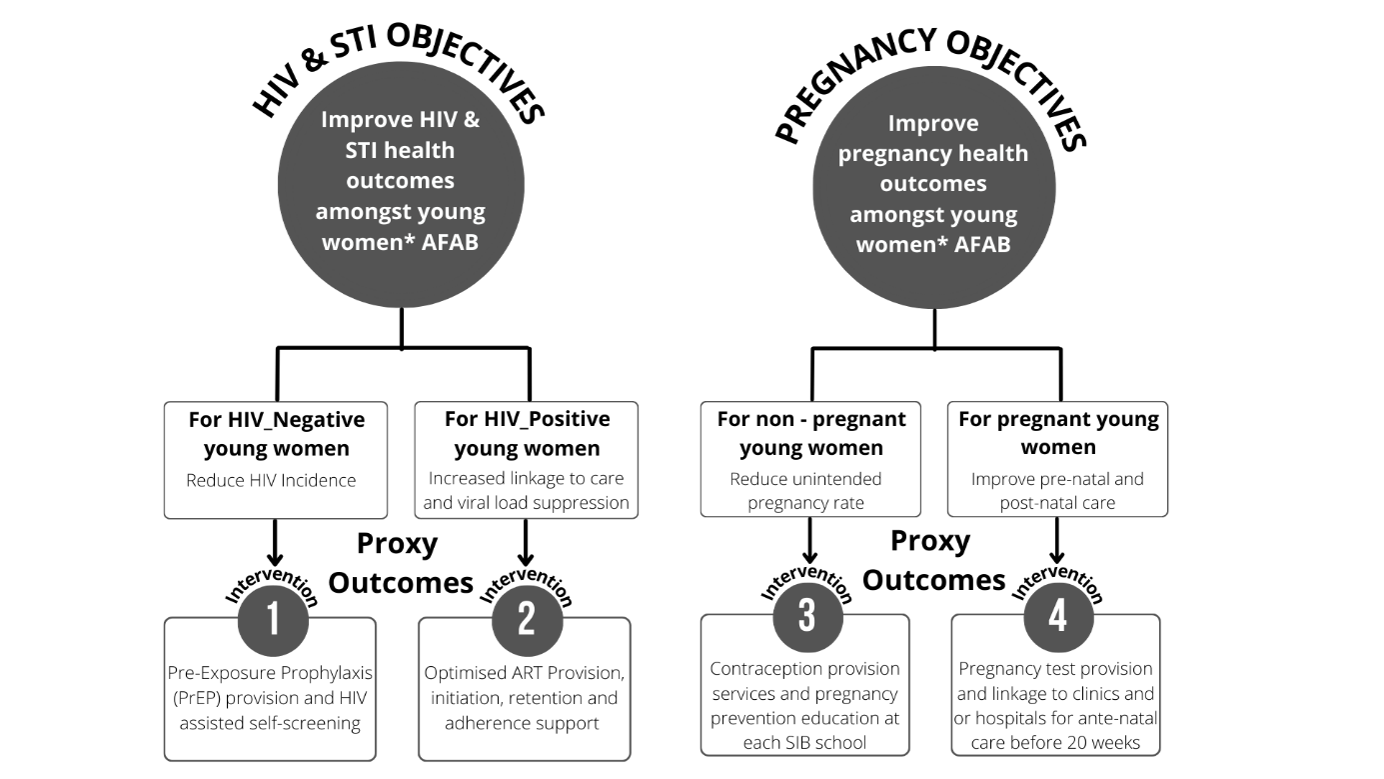Can data and evidence sharing help us develop an outcomes ecosystem?
This article summarises contributions from Nevilene Slingers (South African Medical Research Council), Beth Rivett-Carnac (Rand Merchant Bank), Richard Johnson (Healthy Brains Global Initiative), Maria Alejandra Urrea (Social Finance) and participants of the INDIGO peer learning session moderated by Gillian Moodley (Bertha Centre).
This article summarises contributions from Nevilene Slingers (South African Medical Research Council), Beth Rivett-Carnac (Rand Merchant Bank), Richard Johnson (Healthy Brains Global Initiative), Maria Alejandra Urrea (Social Finance) and participants of the INDIGO peer learning session moderated by Gillian Moodley (Bertha Centre).
Understanding what contributes to the success of outcomes-based contracts is a crucial component in their evolution. In a recent INDIGO peer learning session, we discussed how data and evidence sharing can assist in the development of an outcomes ecosystem, citing the case of the Imagine Social Outcomes-Based Contract (SOBC) in South Africa. Petro Rousseau, INDIGO Data Steward in South Africa, shares insights from this session on data and evidence sharing.
Imagine Social Outcomes-Based Contract (SOBC)
Dr Nevilene Slingers explained how the South African Medical Research Council (SAMRC) aims to develop an ecosystem to expand outcomes-based contracts (OBC) and other forms of innovative financing to improve health outcomes. The SAMRC plans to make data and evidence about the Imagine SOBC available on open-source platforms, such as the Impact Bond Dataset, to inform programming and policy making.
The Imagine SOBC is the first social impact bond that uses full government funding to achieve social outcomes in South Africa. The school-based Imagine SOBC wants to empower adolescent girls and young women (AGYW) to improve their sexual health and wellbeing (Figure 1).

Lessons learned during Imagine SOBC contracting phase
Setting up OBCs take longer than anticipated
Whilst the process built trust and understanding, commitment took longer than anticipated, despite initial stakeholder buy-in. Dr Slingers emphasised the importance of enabling public sector policies, regulations and finalising all government approvals before the contracting phase to reduce transaction costs.
Standardisation could improve transparency and accountability to scale OBCs
Lessons learned after the Imagine SOBC experience will inform the development of standardised tools for other settings. Beth Rivett-Carnac agreed that standardised approaches to performance and indemnities would benefit contracting and could reduce transaction costs and time.
On the investor's experience: OBC contracting looks slightly different for them
As a financial investor, Rand Merchant Bank (RMB) is good at assessing risk and pricing for credit risk. However, OBC transaction structures introduce a new type of risk - implementation risk - that is not traditionally considered in the industry. Implementation risk considers the type of intervention, the track record of the implementer, and the ability to achieve the targeted outcomes. When funding the government to implement OBCs, banks don't usually have established relationships with implementers. As part of due diligence, RMB had to assess the implementation environment.
Share information with potential investors
Certain investors want social outcomes in addition to financial gain but for the investment industry to invest capacity in assessing new types of projects or interventions, there needs to be sufficient scale of investment opportunities. The private sector’s appetite for OBCs would therefore likely increase if OBCs can demonstrate a significant pipeline of worthwhile projects with social impact as well as financial return broadly in line with the benchmark.
Lessons learned from other SOBCs
OBCs are richer in data than other contract types.
Richard Johnson stated that if data sharing is embedded in the culture of service provision it would improve accountability for implementation performance. OBCs must demonstrate how services deliver value for money and this needs more data. Richard said full disclosure in sharing of data is critical as it increases transparency of performance contracts and leads to more accountability
Data sharing could have unanticipated effects
Richard mentioned the big shift in the UK, about 15 years ago, when the entire welfare-to-work Employment Services System was based on co-design. Service providers and the commissioners shared data openly on who was doing what and its cost. The opposition party then used the information against the government. When the government changed, they went back to not sharing data.
Balance the interests and values of public and private sector actors
According to Richard, a good OBC contract aligns the incentives of the commissioner, the investor, the service provider and the service user. In addition, data sharing should also align incentives of the public sector and the private sector.
How SOBC data sharing contributes to building a successful ecosystem
SOBCs aim to shift government thinking
Maria Alejandra Urrea highlighted the importance of understanding the context in which OBCs are implemented. She used examples from Latin America, where different ecosystems have reached different levels of maturity in OBC implementation, to explain that the use of these mechanisms have influenced the way government monitors social programmes. Some public authorities have started monitoring final outcomes in their regular programming after using SOBC instead of focusing exclusively on monitoring activities or services.
Create the data that you are missing
Maria Alejandra cautioned that data needed for a new SOBC might not be available in the early stages and highlighted the importance of creating the data that is needed. SOBCs are therefore not only contracts for implementing projects with social outcomes. They also provide opportunities to learn, share and gather information. Explicit and strategic conversations around data creation and data sharing at the outset are critical to the success of SOBCs. Agreement on and financing of data requirements are often overlooked during the contracting phase.
Final remarks
- Data sharing can increase accountability.
- The cost of data collection and sharing must be included in the SOBC setup cost.
- SOBC development cost and burden can decrease over time, as standardisation improves.
- Spending time with stakeholders on their understanding of risk and data is important.
- Develop a pipeline of SOBC projects for the investment community to gain experience and confidence.
The link to the full recording of the peer learning session can be accessed here